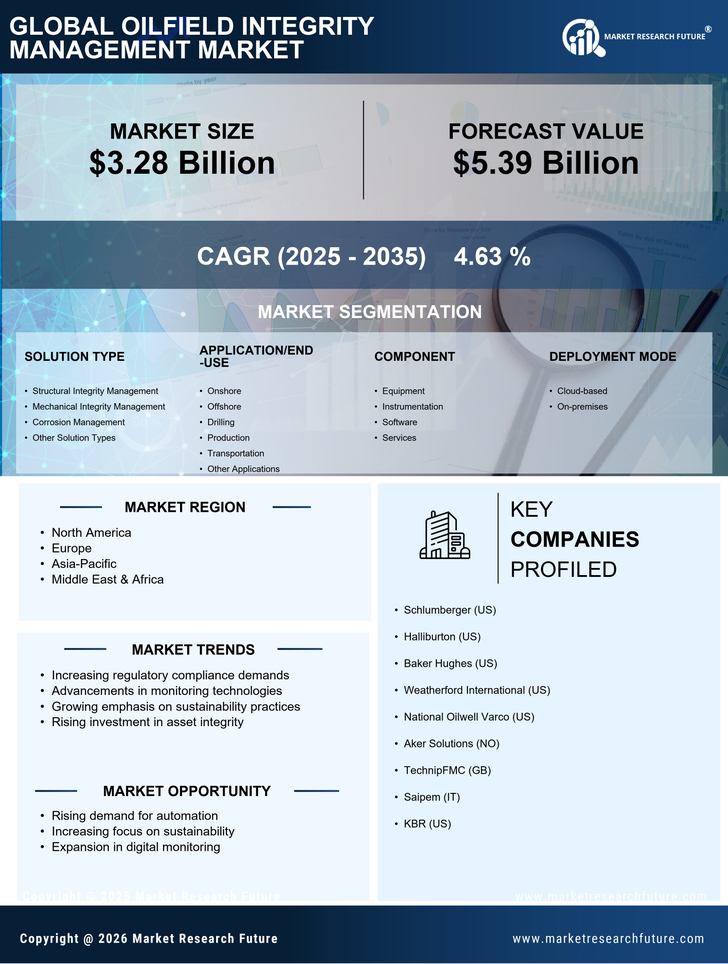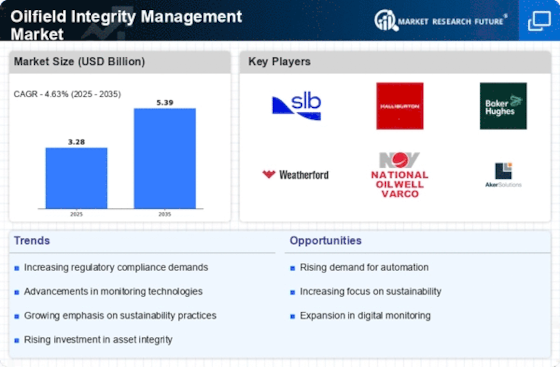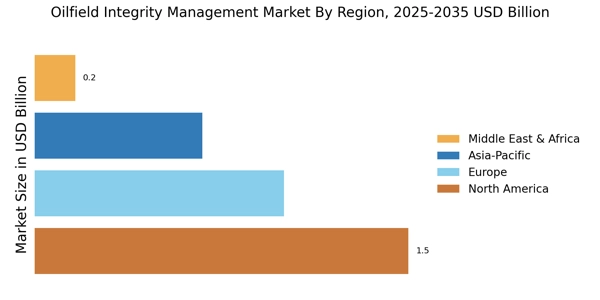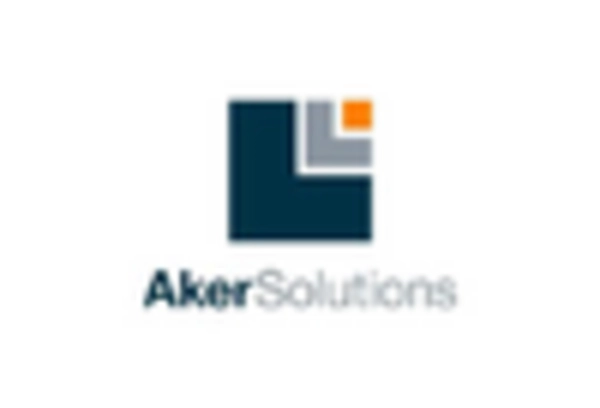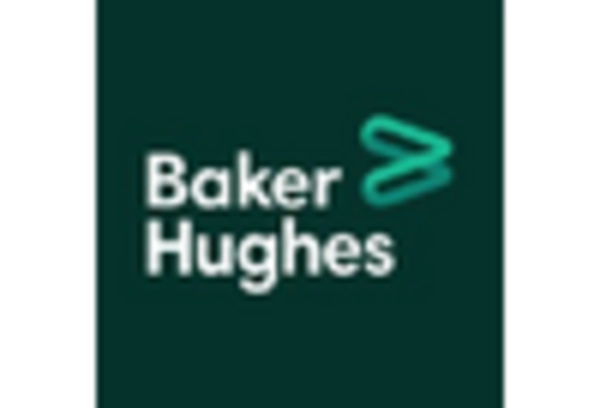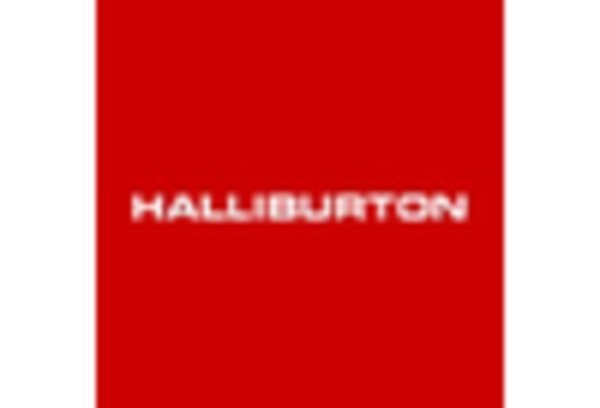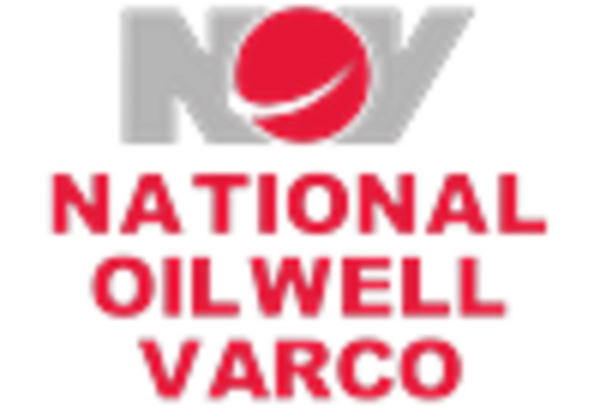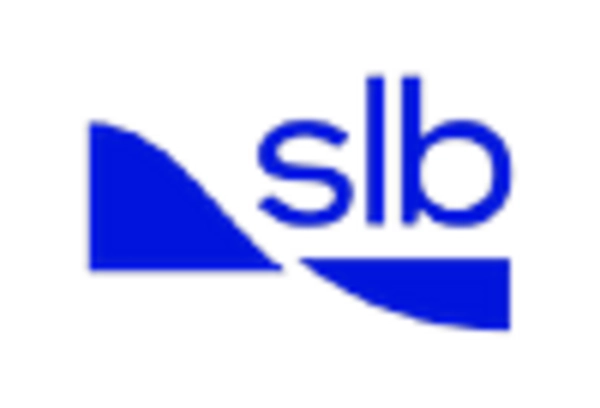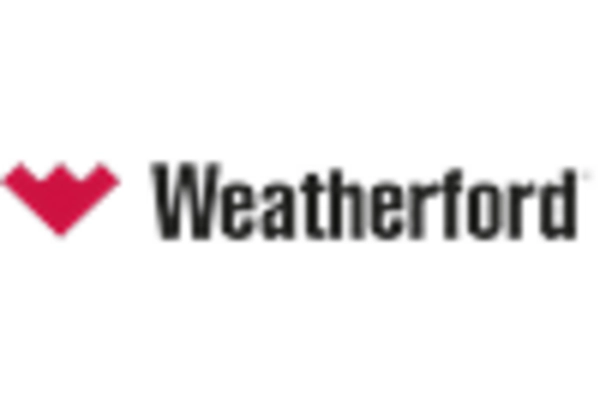Increasing Demand for Oil and Gas
The Oilfield Integrity Management Market is experiencing a surge in demand for oil and gas, driven by the growing energy needs of various sectors. As economies expand, the consumption of fossil fuels remains significant, leading to increased exploration and production activities. This heightened demand necessitates robust integrity management practices to ensure the safety and reliability of oilfield operations. According to recent estimates, the oil and gas sector is projected to grow at a compound annual growth rate of approximately 3.5% over the next few years. Consequently, companies are investing in advanced integrity management solutions to mitigate risks associated with equipment failure and environmental hazards, thereby enhancing operational efficiency and compliance with industry standards.
Focus on Environmental Sustainability
The Oilfield Integrity Management Market is witnessing a growing emphasis on environmental sustainability, driven by public awareness and corporate responsibility. Companies are increasingly adopting integrity management practices that prioritize environmental protection and resource conservation. This shift is reflected in the implementation of technologies aimed at reducing emissions, preventing spills, and minimizing the ecological footprint of oilfield operations. As stakeholders demand greater transparency and accountability, organizations are investing in sustainable practices that align with global sustainability goals. This trend is expected to propel the market forward, as firms recognize the long-term benefits of integrating sustainability into their operational frameworks.
Regulatory Pressures and Compliance Requirements
The Oilfield Integrity Management Market is significantly influenced by stringent regulatory pressures and compliance requirements imposed by governmental bodies. These regulations are designed to ensure the safety and environmental sustainability of oilfield operations. Companies are compelled to adopt comprehensive integrity management practices to adhere to these standards, which often include regular inspections, risk assessments, and reporting obligations. Failure to comply can result in severe penalties and operational shutdowns, prompting organizations to invest in integrity management solutions. The increasing complexity of regulations is likely to drive market growth, as firms seek to enhance their compliance capabilities and mitigate legal risks associated with non-compliance.
Technological Advancements in Monitoring Systems
Technological innovations are playing a pivotal role in the Oilfield Integrity Management Market, particularly in the development of advanced monitoring systems. The integration of Internet of Things (IoT) devices, artificial intelligence, and machine learning algorithms enables real-time data collection and analysis, facilitating proactive maintenance and risk assessment. These technologies allow operators to monitor the integrity of pipelines, wells, and other critical infrastructure with unprecedented accuracy. As a result, companies can identify potential issues before they escalate, reducing downtime and maintenance costs. The market for these advanced monitoring solutions is expected to witness substantial growth, with projections indicating a potential increase of over 20% in adoption rates within the next five years.
Investment in Asset Integrity Management Solutions
Investment in asset integrity management solutions is a key driver of the Oilfield Integrity Management Market. Companies are recognizing the importance of maintaining the integrity of their assets to ensure operational efficiency and safety. This includes the adoption of advanced technologies such as predictive maintenance, risk-based inspection, and integrity management software. The market for these solutions is projected to grow significantly, with estimates suggesting an increase in investment by over 15% in the coming years. By prioritizing asset integrity, organizations can reduce operational risks, enhance safety measures, and ultimately improve their bottom line, making this a critical focus area within the industry.
